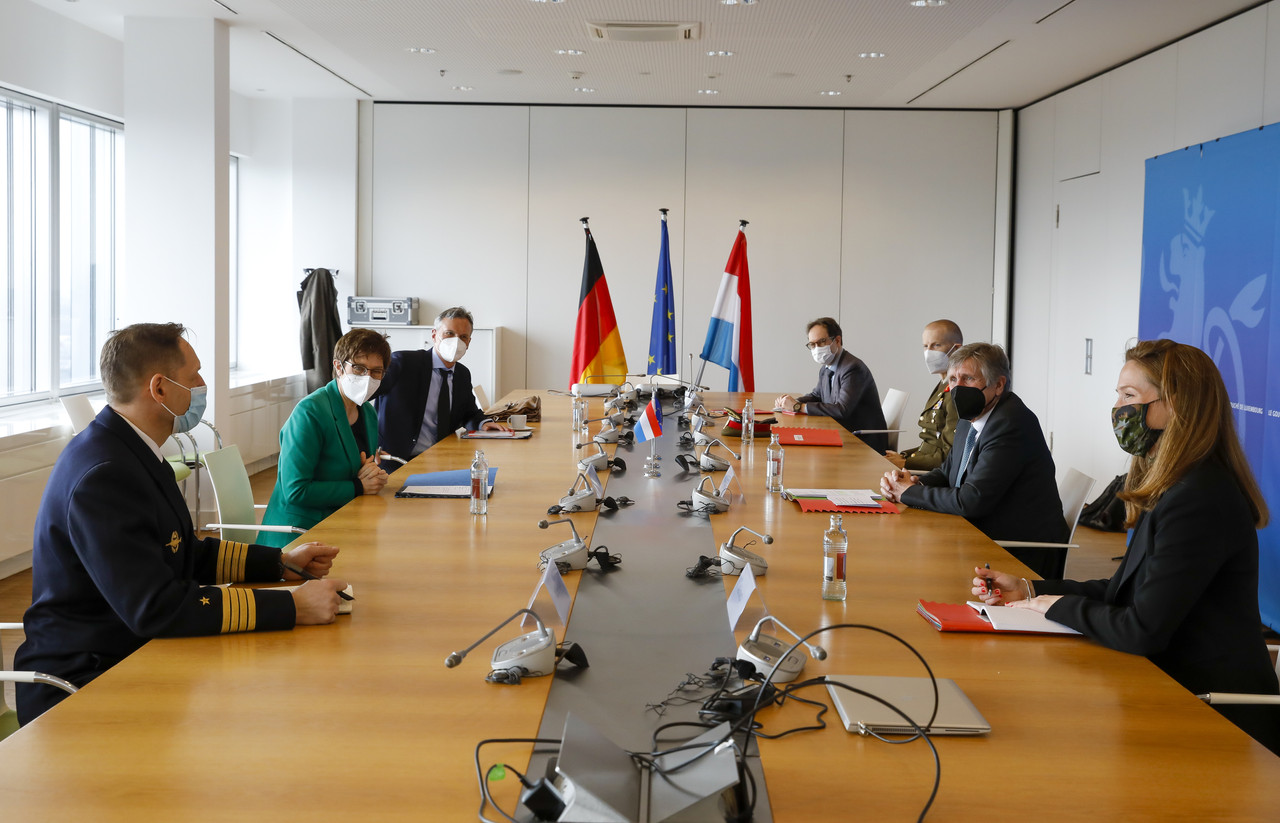Kramp-Karrenbauer assumed office in July 2019 after her predecessor Ursula von der Leyen became president of the European Commission. She visited Luxembourg on 22 March for a meeting with Bausch.
They discussed space and Earth observation as a domain for defence. Luxembourg is set to launch an Earth observation satellite next year after parliament gave the go-ahead to increase the budget of the controversial project last year.
After a spending review, the project launched under former defence minister Etienne Schneider (LSAP) saw its budget rise from €170m to €309m.
They also discussed Luxembourg’s participation in the Geometoc Support Coordination Element, a Germany-led project to enhance geospatial, meteorological and oceanographic support, including for military operations. Other members include Austria, France, Greece, Portugal and Romania.
The project looks at data acquisition, big data and analytics, and joint training to improve European capabilities in the three geometoc domains.
The defence minister also discussed cyber defence, just a few weeks after Luxembourg signed off on a cyber defence strategy, including a virtual training ground against cyber-attacks hosted by the Nato Support and Procurement Agency in Capellen.
Nato spending pledge
Luxembourg and Germany both fall short of a Nato pledge to spend 2% of GDP on the military, although Germany’s 1.57% in 2020 far outdid the grand duchy’s roughly 0.6%, which the country is planning on raising to 0.69% by 2023 and 0.72% by 2025.
Bausch during a plenary session with lawmakers in July last year called the pledge “idiotic” for Luxembourg, which has a high GDP compared to the size of its army of just around 400 active soldiers.
The Green minister at the time said preventing climate change as a source of conflict should be considered as defence spending under Nato rules. Under the current rules it would be impossible for Luxembourg to meet the 2% target, he said.
Nato chief Jens Stoltenberg in a September 2020 speech said Nato “must help curb climate change” because “climate change is making the world unsafe.” A strategic review to set the organisation’s 2030 agenda is currently underway.
Bausch and Kramp-Karrenbauer in a joint statement on 22 March said that “there is a clear intention to set up the armies of both countries in such a way that they make a contribution to climate protection and at the same time remain resilient and responsive.”
Armies could also support managing the impact climate change is already having, such as extreme weather events.
“In this context, François Bausch called for climate issues to be systematically included in security and defense within the EU and NATO,” the statement said further.
